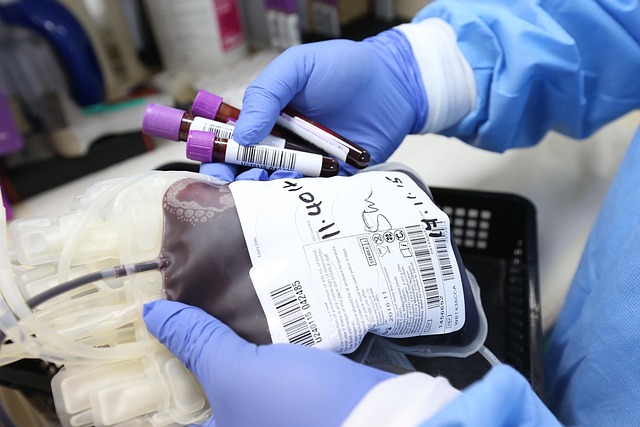What to Know About Arthritis Stem Cell Clinical Trials
Stem cell therapy is gaining attention as a potential new approach to managing arthritis and chronic joint pain Researchers are now exploring how these regenerative cells may help repair damaged tissue and support long-term joint health Curious what this could mean for you Discover how arthritis stem cell clinical trials are shaping the future of care

What are arthritis stem cells?
Stem cells are unique cells in the body with the ability to develop into various cell types. In the context of arthritis treatment, researchers are primarily interested in mesenchymal stem cells (MSCs). These cells can differentiate into cartilage, bone, and other tissues found in joints. MSCs can be harvested from various sources, including bone marrow, adipose tissue (fat), and umbilical cord tissue. The goal of using stem cells in arthritis treatment is to harness their regenerative properties to repair damaged joint tissues and potentially slow or reverse the progression of the disease.
What is being studied in arthritis stem cell therapy clinical trials?
Arthritis stem cell clinical trials are investigating several key aspects of this potential treatment:
-
Efficacy: Researchers are examining whether stem cell therapy can effectively reduce pain, improve joint function, and potentially regenerate damaged cartilage in patients with various forms of arthritis, including osteoarthritis and rheumatoid arthritis.
-
Safety: As with any new treatment, ensuring the safety of stem cell therapy is paramount. Trials are monitoring for potential side effects and long-term complications.
-
Optimal delivery methods: Studies are exploring different ways to administer stem cells, such as direct injection into affected joints or intravenous infusion.
-
Cell sources and processing: Trials are comparing the effectiveness of stem cells derived from different sources and evaluating various methods of cell preparation and expansion.
-
Dosage and frequency: Researchers are working to determine the optimal number of stem cells to use and how often treatments should be administered for the best results.
Who may qualify to participate in arthritis-focused stem cell research?
Eligibility criteria for arthritis stem cell clinical trials can vary depending on the specific study. However, some common factors that researchers consider include:
-
Type and severity of arthritis: Many trials focus on specific forms of arthritis, such as knee osteoarthritis or rheumatoid arthritis.
-
Age: Some studies may have age restrictions, often targeting adults over 18 or focusing on specific age groups.
-
Overall health: Participants typically need to be in generally good health, aside from their arthritis diagnosis.
-
Previous treatments: Some trials may require participants to have tried and failed conventional treatments before being eligible for stem cell therapy.
-
Absence of certain conditions: Patients with specific medical conditions or those taking certain medications may be excluded to ensure safety and minimize variables.
If you’re interested in participating in a stem cell clinical trial for arthritis, it’s essential to consult with your healthcare provider and research ongoing studies in your area.
What do participants experience during a stem cell therapy trial?
Participating in a stem cell therapy trial for arthritis typically involves several steps:
-
Screening: Potential participants undergo thorough medical evaluations to ensure they meet the study criteria.
-
Stem cell harvesting: If autologous (patient’s own) stem cells are used, they will be collected through a procedure like bone marrow aspiration or liposuction.
-
Cell processing: The harvested stem cells are processed and, in some cases, expanded in a laboratory.
-
Treatment administration: Stem cells are administered according to the study protocol, often through injection into the affected joint(s) or intravenous infusion.
-
Follow-up: Participants attend regular follow-up appointments to assess treatment efficacy and monitor for any side effects. This may include physical examinations, imaging studies, and questionnaires about pain and function.
-
Long-term monitoring: Many trials include extended follow-up periods to evaluate the long-term effects and safety of the treatment.
Why is arthritis research exploring regenerative medicine options?
Arthritis research is increasingly focusing on regenerative medicine approaches like stem cell therapy for several reasons:
-
Limited effectiveness of current treatments: While existing therapies can manage symptoms, they often don’t address the underlying tissue damage or stop disease progression.
-
Potential for tissue repair: Stem cells have shown promise in regenerating damaged cartilage and other joint tissues, offering hope for more lasting improvements.
-
Minimally invasive approach: Stem cell therapy could potentially provide an alternative to invasive surgical procedures for some patients.
-
Personalized medicine: Using a patient’s own stem cells (autologous therapy) may reduce the risk of rejection and offer a more tailored treatment approach.
-
Long-term cost-effectiveness: If successful, regenerative therapies could reduce the need for ongoing medications and joint replacements, potentially lowering long-term healthcare costs.
As research in this field progresses, stem cell therapy may offer new hope for millions of arthritis sufferers worldwide. However, it’s important to note that while early results are promising, more extensive clinical trials are needed to fully understand the effectiveness, safety, and optimal use of stem cell treatments for arthritis.
In conclusion, arthritis stem cell clinical trials represent an exciting frontier in the search for more effective treatments for this debilitating condition. By exploring the potential of regenerative medicine, researchers aim to not only manage symptoms but potentially reverse joint damage and improve long-term outcomes for arthritis patients. As these studies continue, they may pave the way for innovative therapies that could significantly enhance the quality of life for those living with arthritis.
This article is for informational purposes only and should not be considered medical advice. Please consult a qualified healthcare professional for personalized guidance and treatment.




